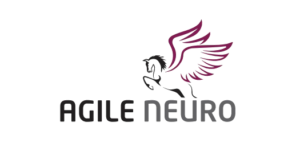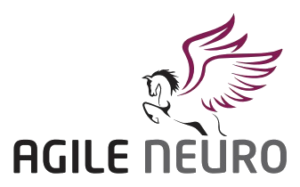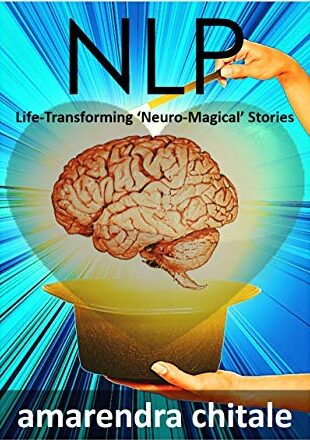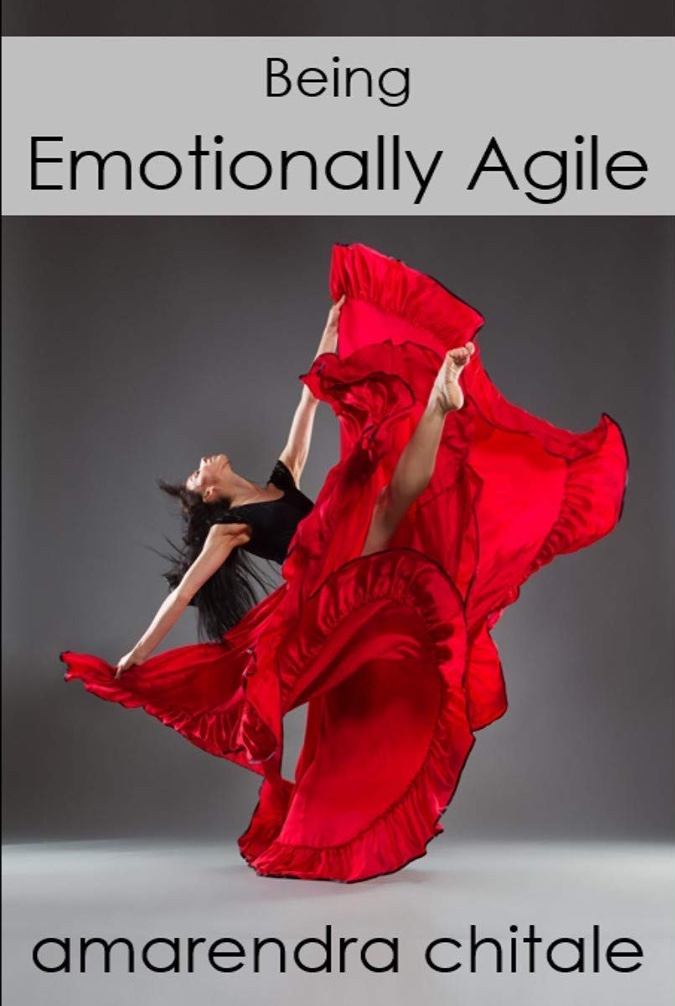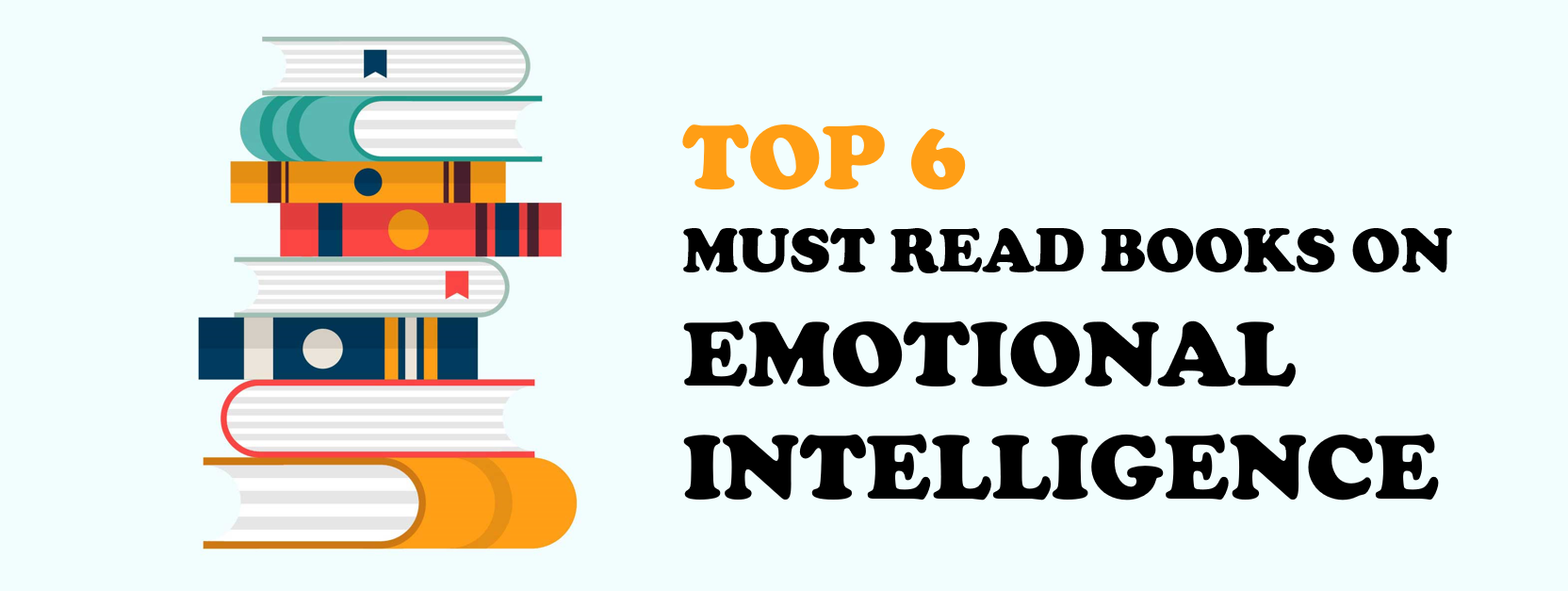
Anything to do with human psychology is so deep and vast. They rightly say, ‘Every new person is a new book of psychology’. Then the question arises, how do we create a ‘bible’ of psychology because it essentially means generalizing the human cognitive tendencies, temperaments and emotions. I feel, the first step is understanding the human brain (which is humongous task in itself) and then maybe going into the predictive analysis. Indeed, there are a lot of tendencies, responses, thought & feeling patterns which can be generalized a little bit. Thankfully, a lot of research has been done in the areas of the brain, emotions, psychology, mindfulness, moods etc. There are some authors who have articulated the various researches in their books and would help in getting a clear understanding. In this blog, I would like to focus on the hottest topic related to our day-to-day personal and professional life and throw some light on some books for some great ‘emotional reading’.
Yes, you guessed it right – ‘Emotional Intelligence’.

The moment you hear ‘Emotional Intelligence’, the first name that comes to your mind is ‘Daniel Goleman’. Indeed, it is a fantastic book which covers every detail of being intelligent with our emotions. The framework to being emotionally intelligent is very simple. Be ‘Self-aware’. How well do you know yourself and have you done your SWOT analysis? ‘Who am I’ is a very simple, yet a very complicated question in itself. I feel that we probably can never understand ourselves ever in totality. Sometimes ignorance is bliss as they say. And sometimes it is fun to discover yourself while in action rather than sitting in the ‘meditation mode’ to be self-aware. Yes, we know ourselves well enough but not entirely. ‘Well-enough’ is good because the next step in the framework is ‘Self-Management’. If you know yourself well, you have the potential to manage yourself well. Next is the ‘Other’s Awareness’ and ‘Other’s Management’ which completes the framework and this is considered to be the road map to have a successful, peaceful and hassle-free life. Along with this book, Daniel Goleman’s ‘Social Intelligence’ is also great. It focuses on the Social side of humans and indeed I believe that in order to be successful in whatever you want to achieve, the ‘Social’ side has to be dealt with very well. After all, we are not independent islands. We are wired to connect. The effectiveness in communication and whatever we do depends on the response we get from the other side.

We all feel the need to feel the way we want to in various situations. Be it an important presentation or an important client meeting which you are unsure whether it will go well or not. Not to forget, the command over moods we want when it comes to relationships. If you are looking at regulating your ‘moods’, this David Burns’ book is really good. It talks of mood therapies and is a very delightful extension to various self-regulating techniques we know. ‘Feeling Good’ is another book which I would definitely recommend. The name may sound a little therapeutic, but the book is easy to understand and implement.
‘The Emotional Brain’ by Joseph LeDoux focuses on only one part of the ‘Triune Brain’; the Emotional Brain or the Paleomammalian Brain. It is also called the ‘Limbic Brain’. The book very simply focuses on our reaction-response tendencies and how reactions can be converted into responses for better results. Like David Burns’ book, this one also has a great insight on understanding and regulating emotions. I always go with the philosophy that emotions are the biggest stakeholders in the quality of life that we are living vis-à-vis we want to live. Another book which I would definitely recommend.
Now, if you want to go into the detailed process behind your emotions, the cause and effect relationship between the triggers and the emotions, this best-seller by Robert Thayer is a good one. ‘The origin of everyday Moods’ focuses on managing emotions to manage your energy and stress. It also has a great insight on identifying Tensions and releasing them. Anyone who is hypertensive, has anxiety issues or is extremely reactive, this one is a highly recommended.
Finally, here is one more magical book and this one is from Bruce Lipton. It is titled, ‘The Biology of Belief’ and it focuses on the ‘Belief Structures or Belief Systems’ of individuals. I am a firm believer that beliefs make or break us. Limiting Beliefs definitely don’t do any good for us. Over confidence is also a ‘belief’ which has a potential ruining lives. If the Belief System has conflicting components within it, we are generally not happy. Take an example of a person who believes in Honesty. That might be his core value. Suddenly, he is compelled to lie about the product his company is manufacturing because he has aggressive targets to achieve. He wants to achieve his targets because ‘Achievement’ is also his core value. Here we have conflicting values or beliefs and that leads to a lot of internal power struggle in life. Bruce Lipton focuses on aligning the ‘Belief’ systems through this book so that broken pieces can be put into the right place. Indeed, a powerful book.
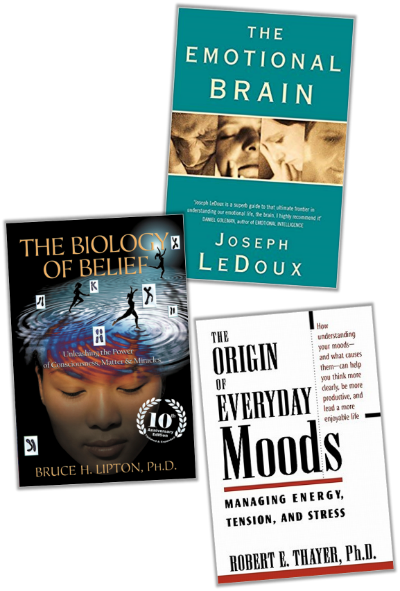
There are many others as well but I feel these ones are the best. In fact, you may bookmark or subscribe to our blog for continuous reading every week on such interesting topics. We hope to provide you with more of such wonderful insights in the area of Emotional Intelligence and Neuro Linguistic Programming (NLP).
